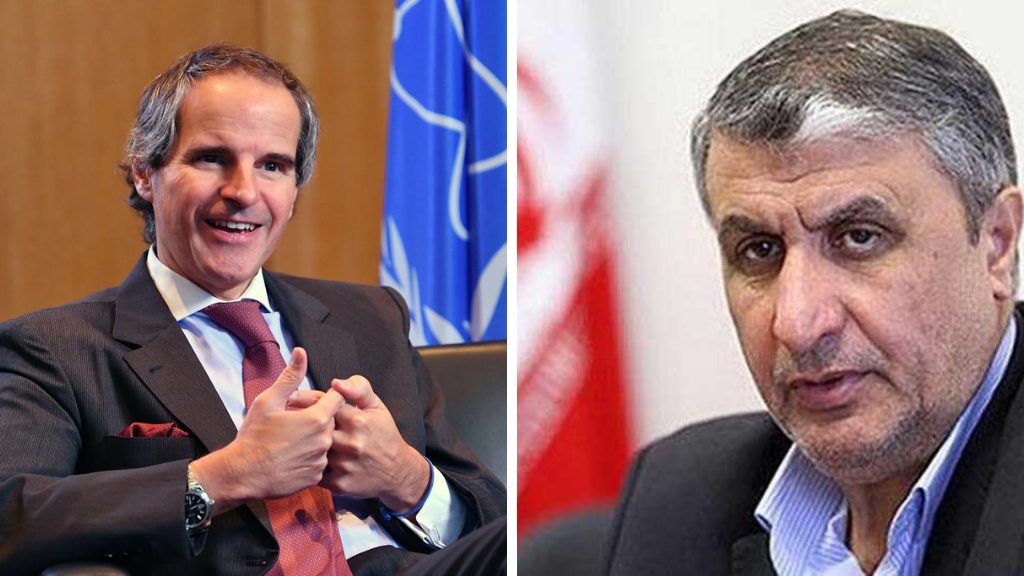The UN nuclear watchdog chief, Rafael Mariano Grossi, embarked on a crucial journey to Iran on Monday, facing mounting challenges in overseeing the Islamic Republic’s rapidly progressing nuclear activities. Amidst heightened tensions in the broader Middle East, particularly fueled by the Israel-Hamas conflict, Grossi confronts the daunting task of ensuring effective monitoring of Iran’s nuclear endeavors.
Grossi has previously cautioned that Iran possesses sufficient enriched uranium, nearing weapons-grade levels, to potentially manufacture “multiple” nuclear weapons, underscoring the gravity of the situation. Acknowledging the limitations of his agency, he admitted the inability to guarantee the absence of clandestine enrichment activities, further complicating the monitoring efforts.
The complexities of the situation are exacerbated by the escalating hostilities between Israel and Iran, with recent reports suggesting Israeli strikes near sensitive nuclear sites in Isfahan. Against this backdrop, UN Nuclear Watchdog Chief Mr.Grossi is set to participate in an Iranian nuclear conference during his two-day visit to the country, aiming to address the pressing concerns surrounding Iran’s nuclear program.
In Tehran, Grossi, UN Nuclear Watchdog Chief, engaged in discussions with Iranian Foreign Minister Hossein Amirabdollahian, signaling a diplomatic effort to navigate the challenges ahead. Utilizing social media platform X, Grossi hinted at proposing tangible measures to revitalize a previous agreement reached with Iran, emphasizing the need for concrete steps to enhance inspection mechanisms.
However, specific details regarding the proposed measures remain undisclosed, adding to the ambiguity surrounding the prospects of resolving the longstanding issues. Grossi’s itinerary includes a visit to Isfahan before returning to Vienna, where he plans to provide updates to the press, highlighting the importance of transparency amid escalating tensions.
The rift between Iran and the International Atomic Energy Agency (IAEA) traces back to the unilateral withdrawal of the United States from the nuclear deal in 2018, prompting Iran to disregard the imposed limitations and escalate uranium enrichment activities. Amidst disruptions in surveillance and restrictions on experienced inspectors, the specter of Iran’s pursuit of atomic weapons looms large.
Echoing concerns, Iranian officials, including Mahmoud Reza Aghamiri, a prominent figure in nuclear physics, have hinted at the possibility of Iran venturing into the realm of nuclear armament, challenging previous assurances by the Supreme Leader Ayatollah Ali Khamenei. While Khamenei’s pronouncements have emphasized Iran’s aversion to nuclear weapons, the fluid nature of religious edicts leaves room for reinterpretation, raising apprehensions.
Despite reassurances of adherence to international treaties, such as the Nuclear Non-Proliferation Treaty, Iran’s actions and rhetoric underscore the precariousness of the situation. Against the backdrop of escalating tensions with Israel and the looming threat of military confrontation, the stakes are higher than ever, with the prospect of a nuclear test looming ominously on the horizon.


